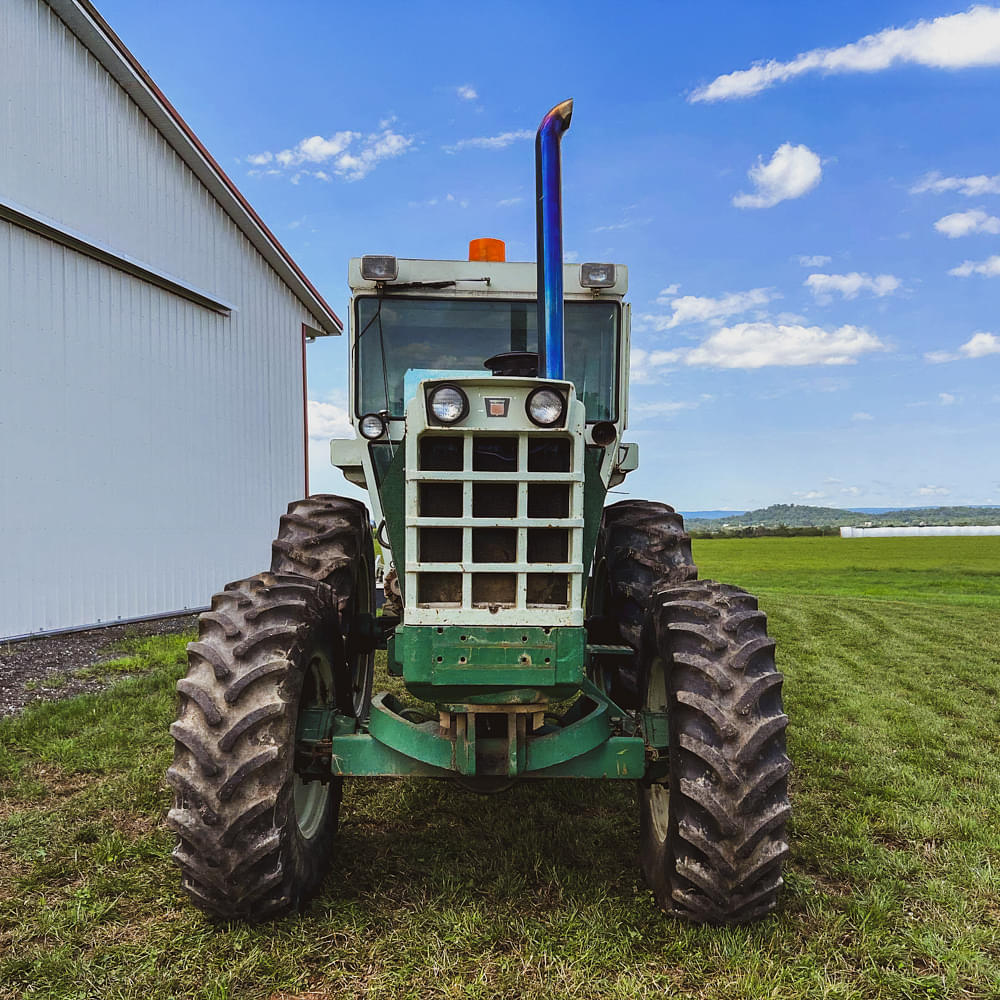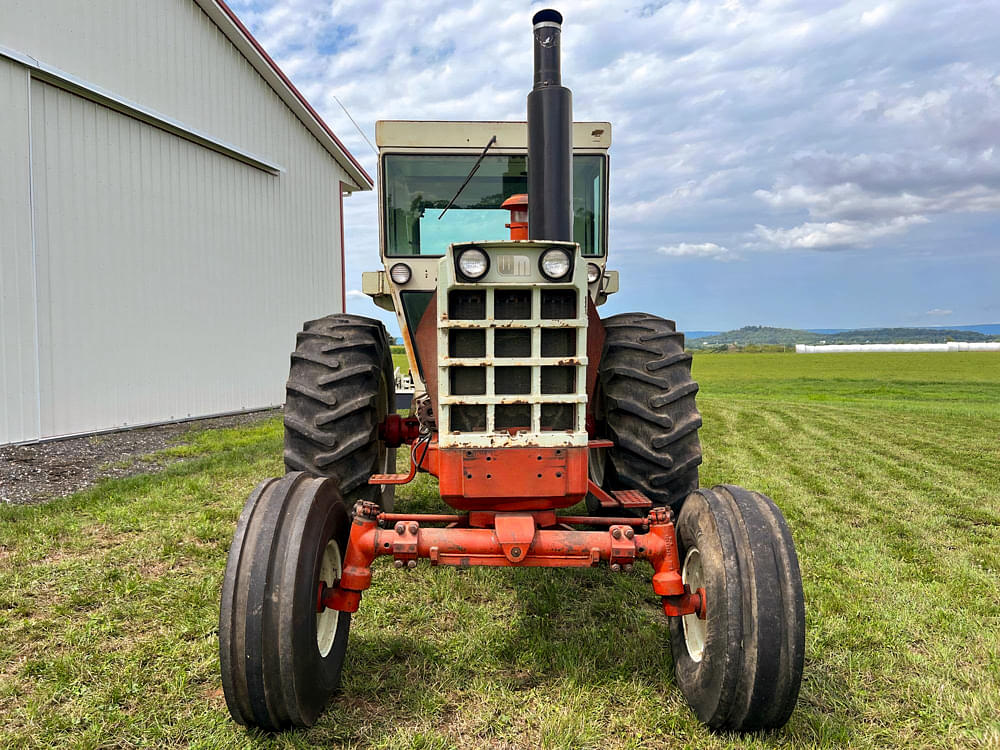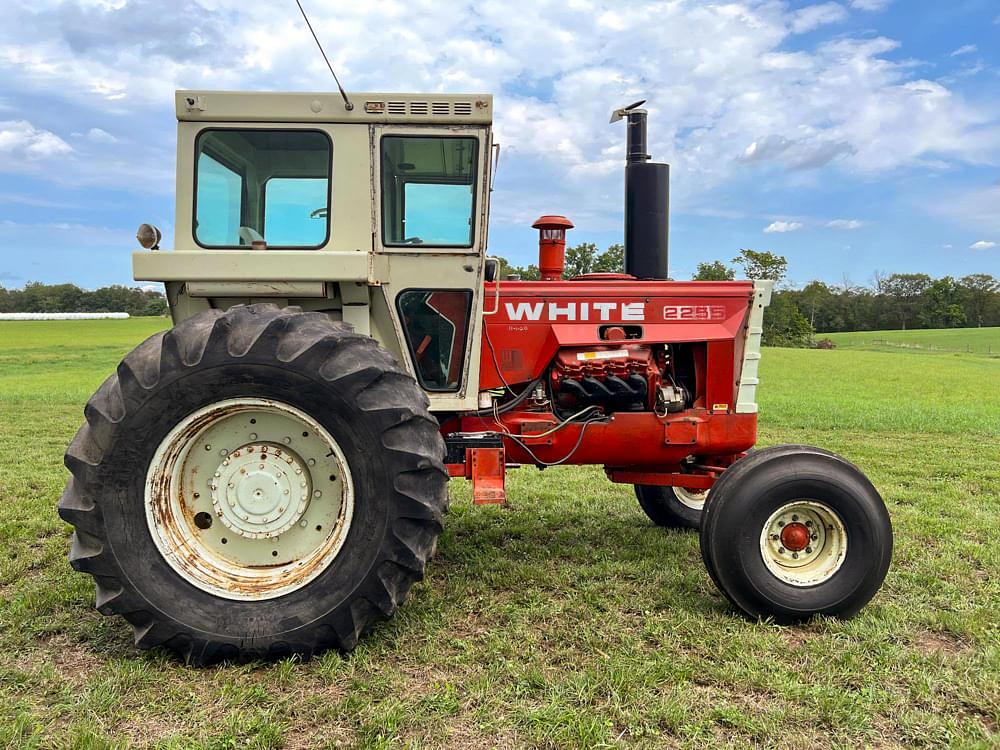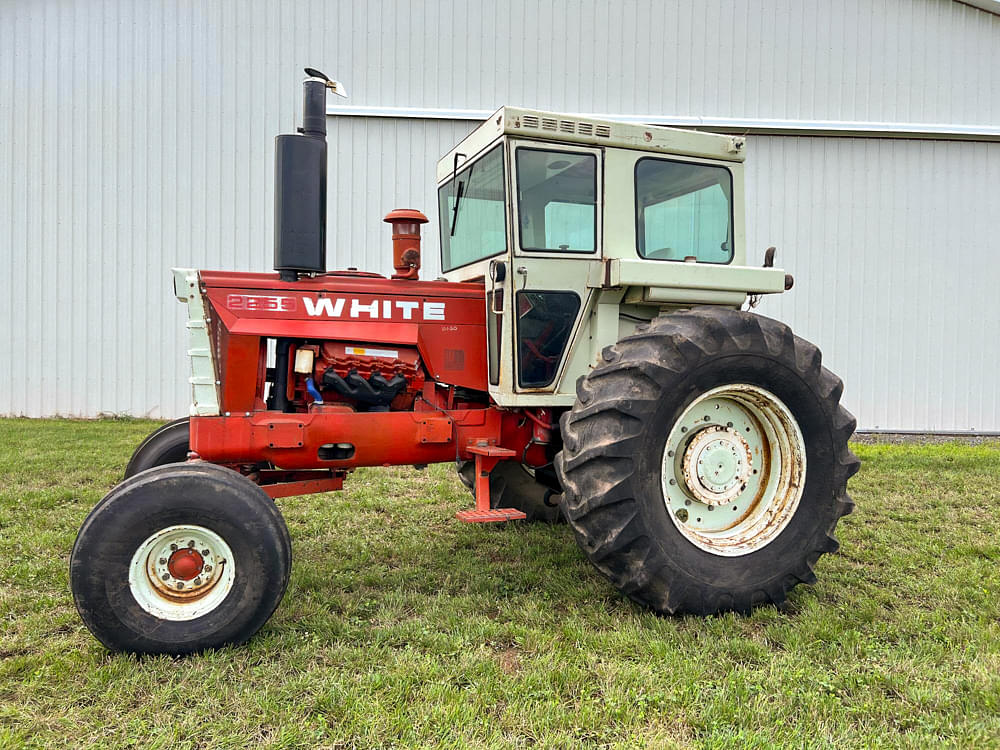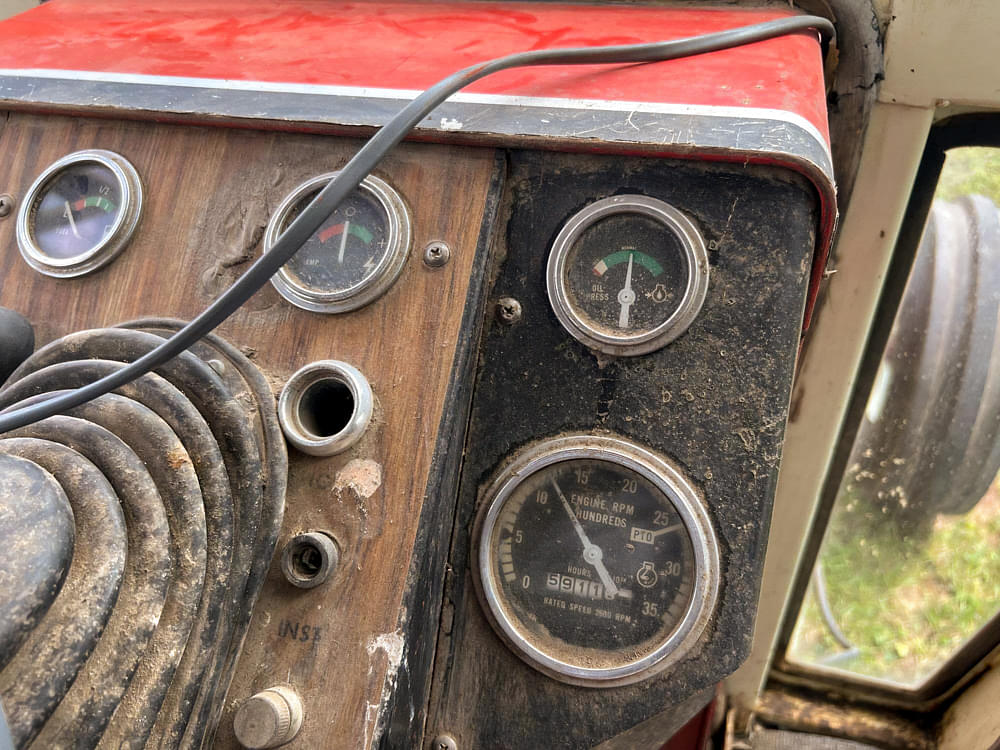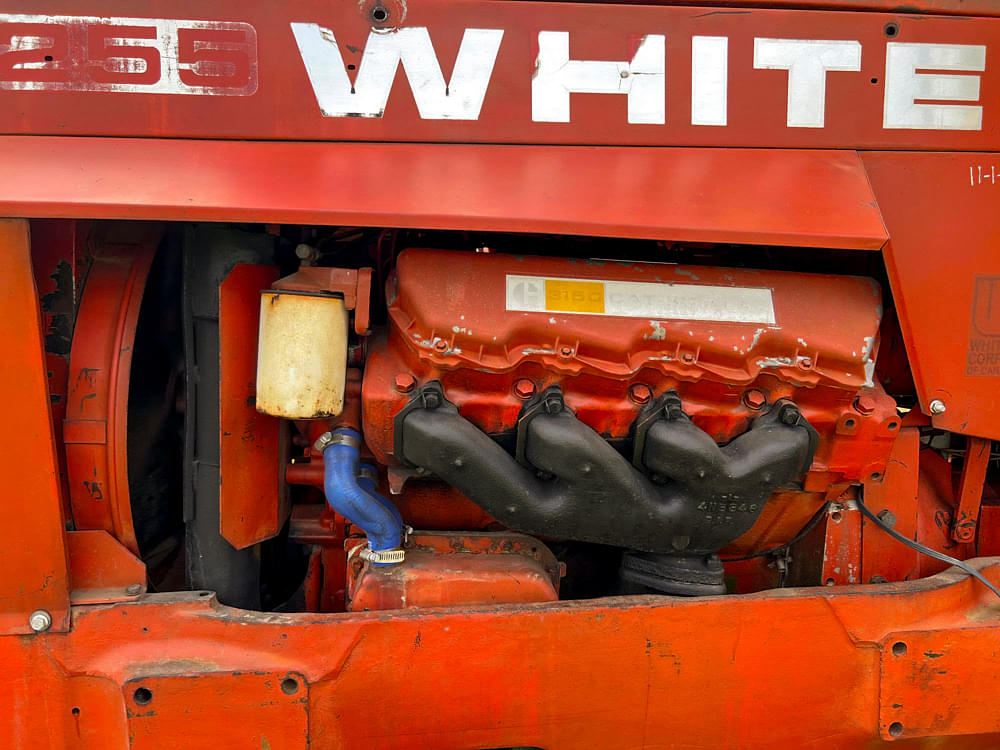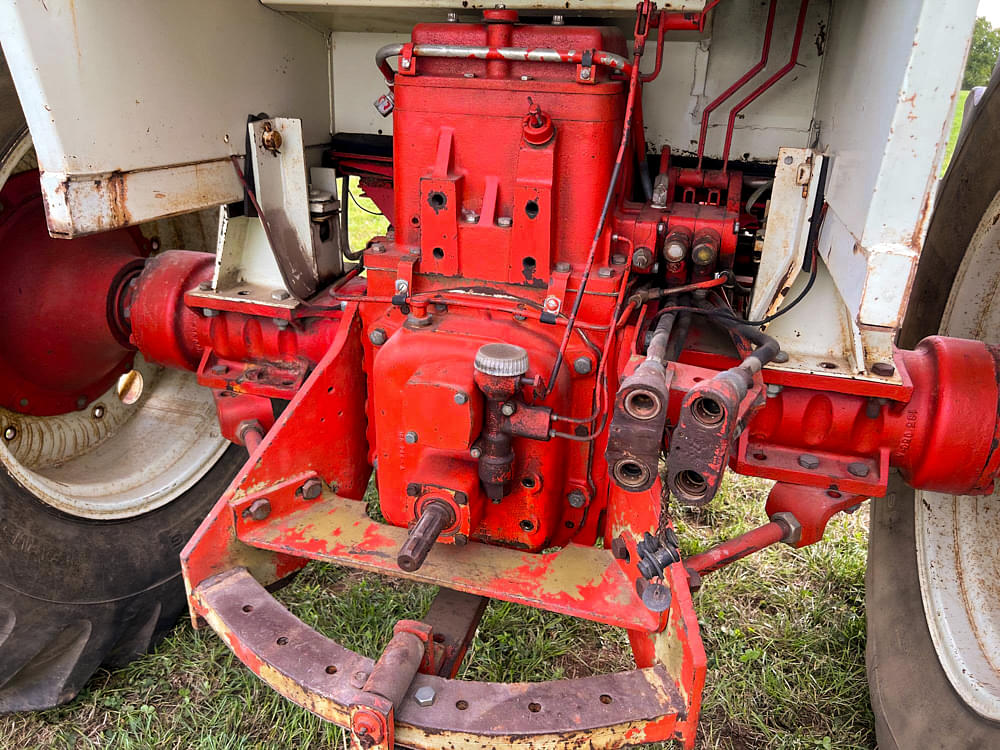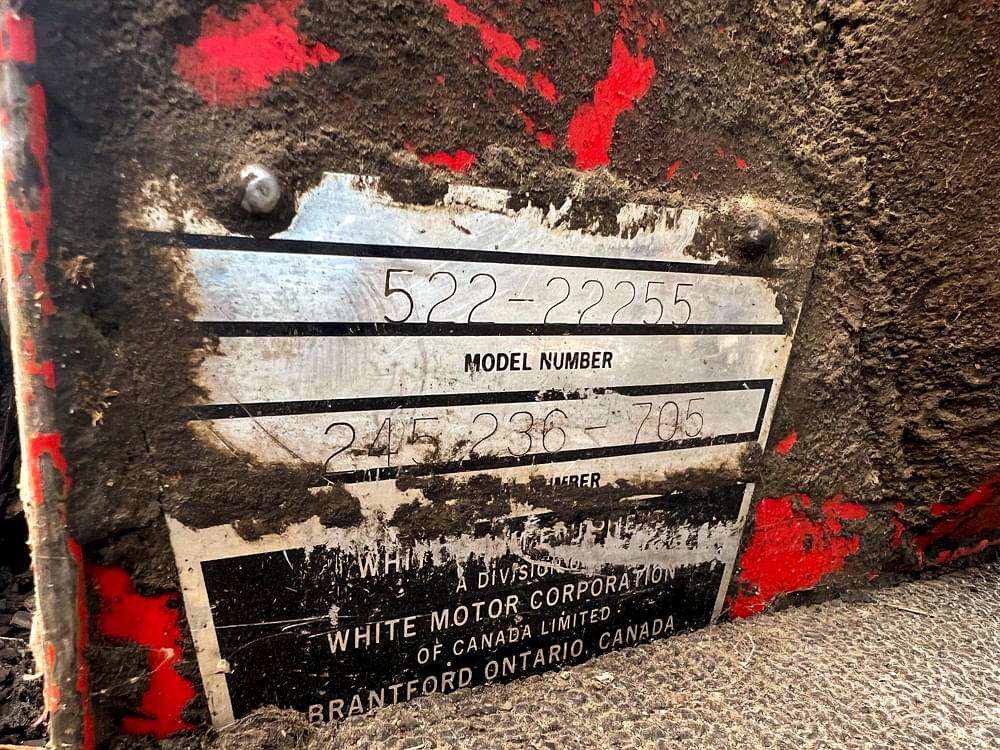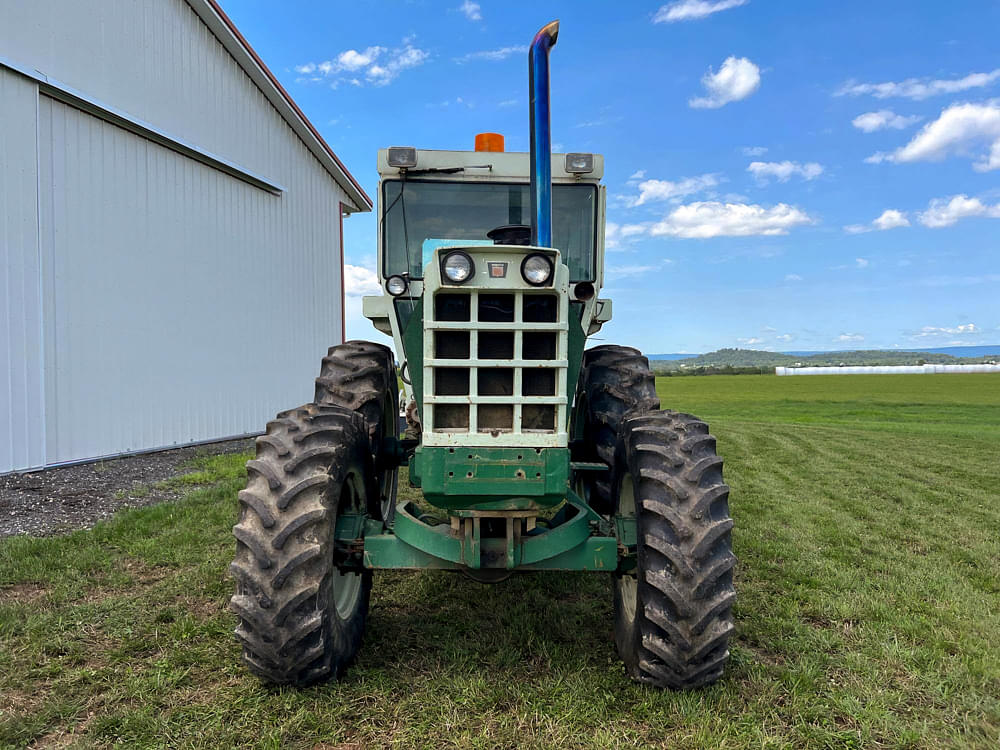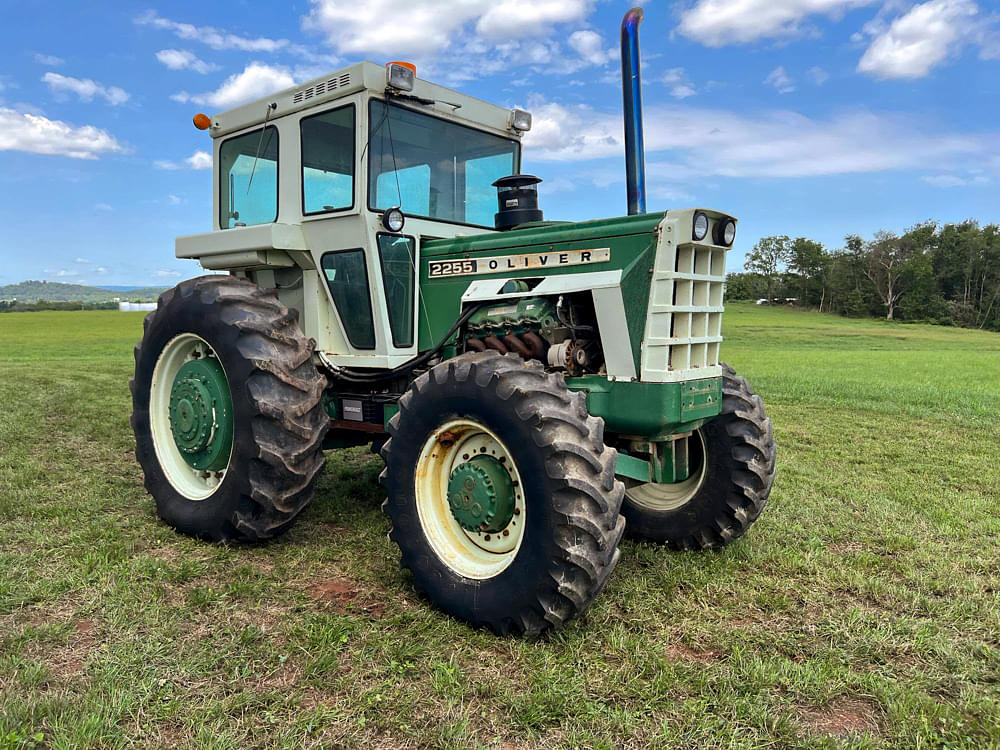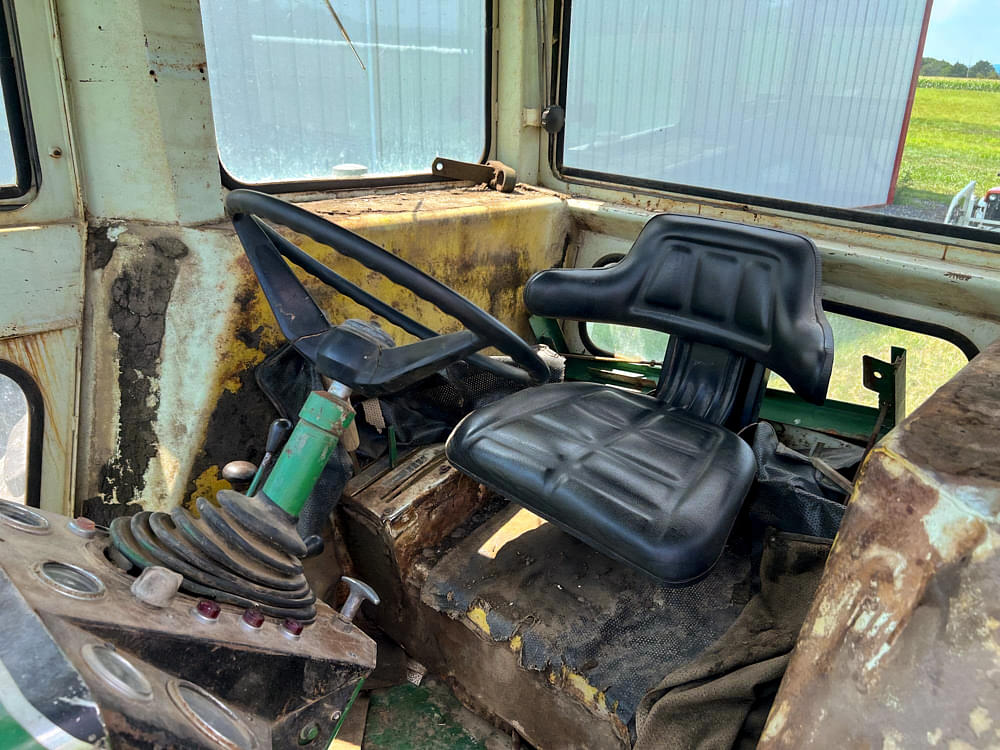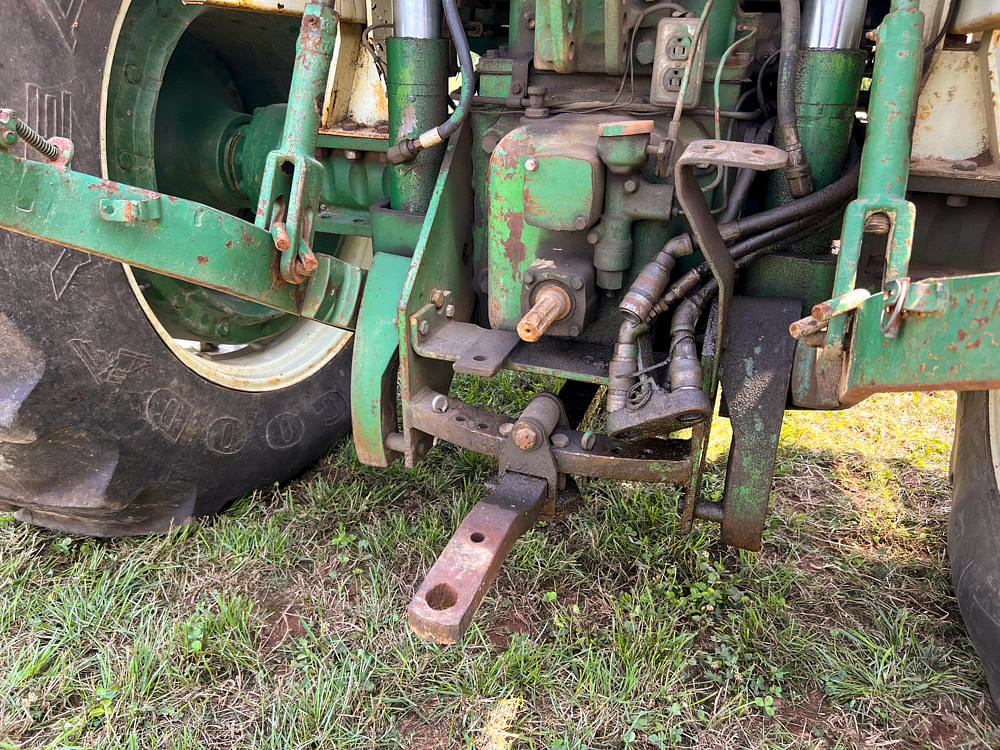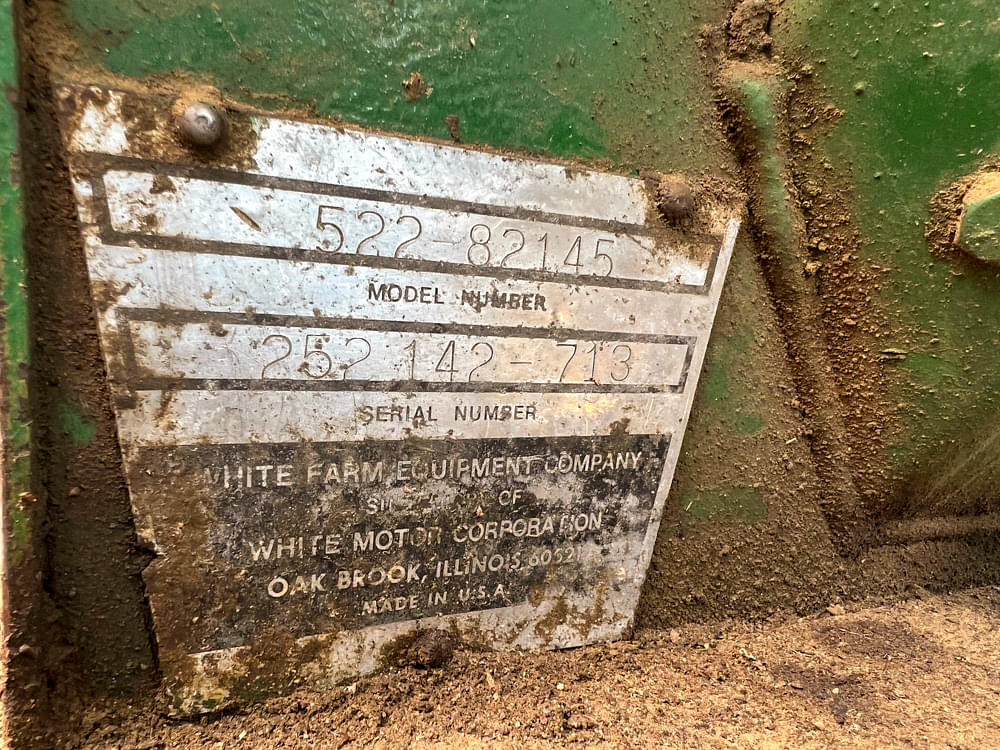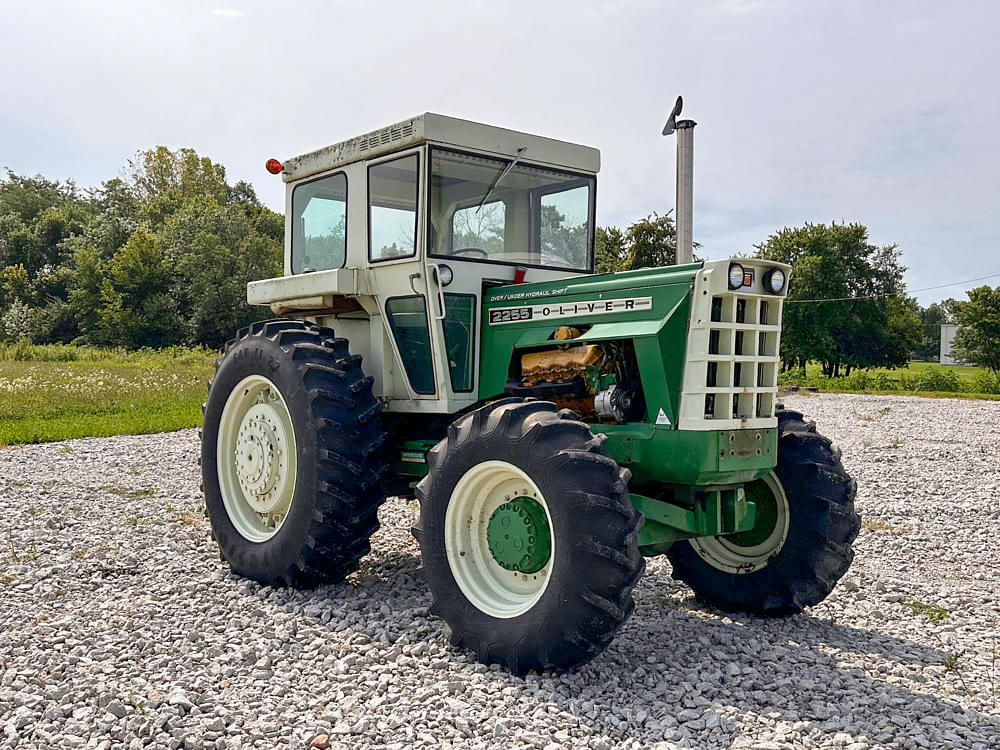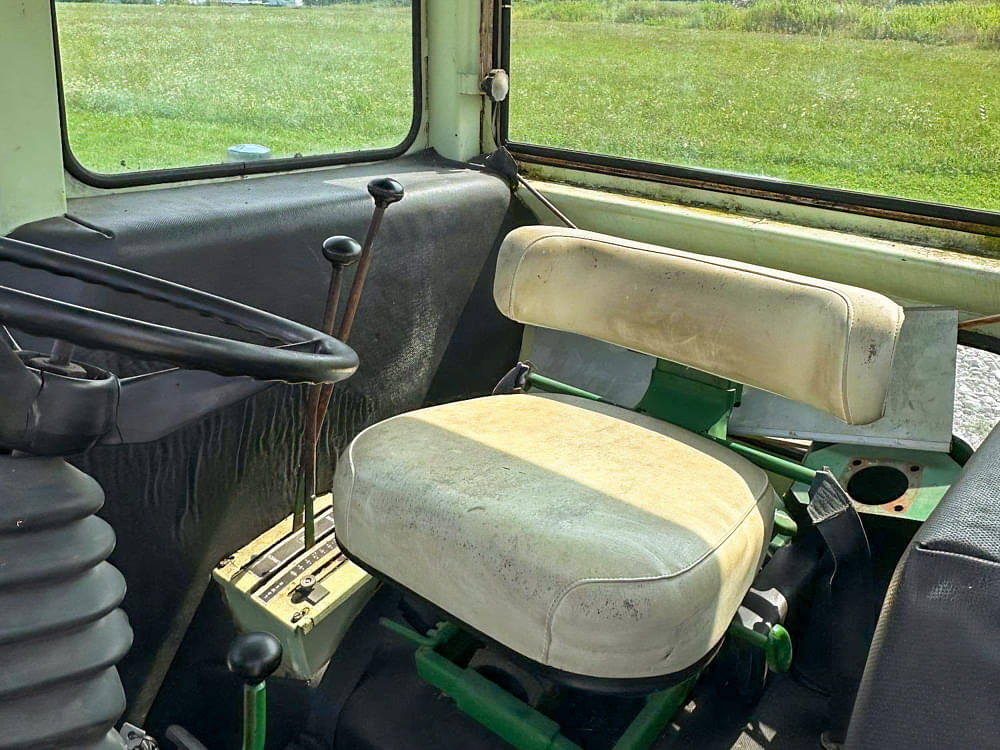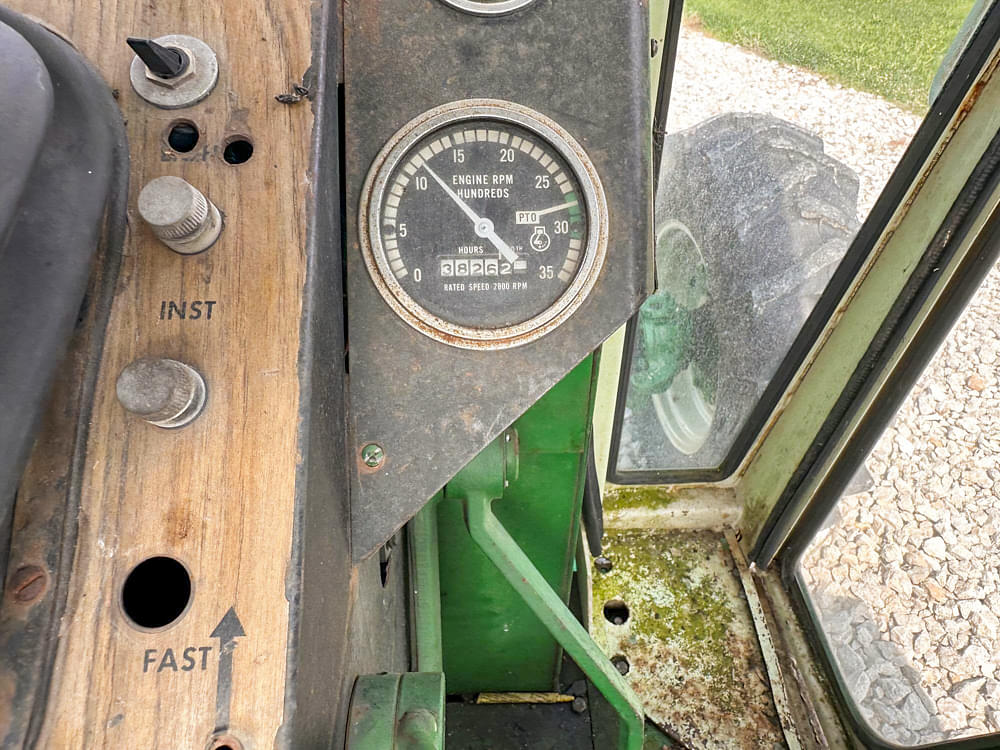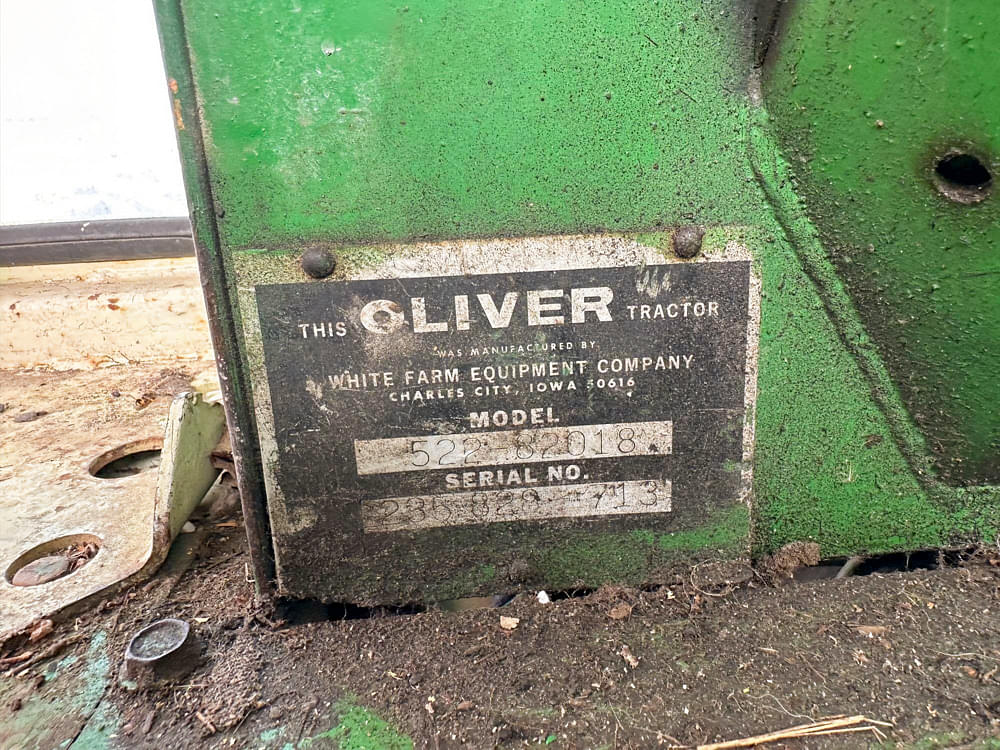INTERESTING IRON
Oliver 2255: The end of an era.
Ryan Roossinck
November 07, 2024
For the past few weeks, we’ve had more Oliver tractors listed on Tractor Zoom than ever before. Everything from an mid-30s Oliver Model 70 to a White/Oliver 2255 (you’ll see it down below) to the 2255 you see up above. As of right now as I write this article, there are 113 Olivers.
That’s definitely not a normal thing around here, but it’s easy to explain. There are a handful of pretty large Oliver collectors who are selling off. It happens from time to time.
That said, of all of those tractors, there are three that really caught my eye. Granted, I’m a muscle tractor nerd, but there are three really nice 2255s set to go to new owners over the next few weeks. So, let’s take a look at ’em!
Oliver 2255s listed on Tractor Zoom
The Oliver 2255: On the fast track…
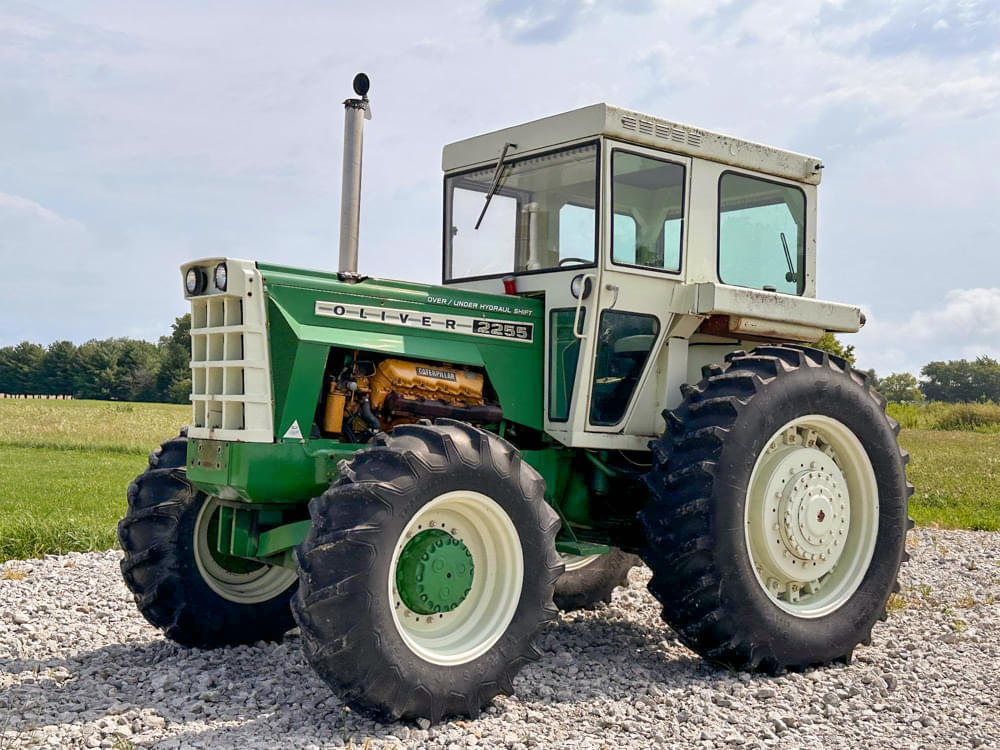
Without going into a long, exhaustive history of Oliver and “adopted” siblings under the White Motor Co. parent company, it’s safe to say that by the late 60s, White was implementing the consolidation of brands to save on manufacturing costs. As such, there was some cross-breeding to fill out model lines. For instance, the Oliver 2055 was essentially a Minneapolis-Moline G1050 painted Meadow Green. The 2155 corresponded with the G1350.
In 1971, though, as a cost-cutting move, White began sunsetting production in the Moline factory in Hopkins, MN. This created a problem; it took the 2055 and 2155 off the table. They knew they needed to replace those two machines with something different – and more powerful. Furthermore, they knew they didn’t have much time to do it.
Building a tractor around a motor…in a hurry
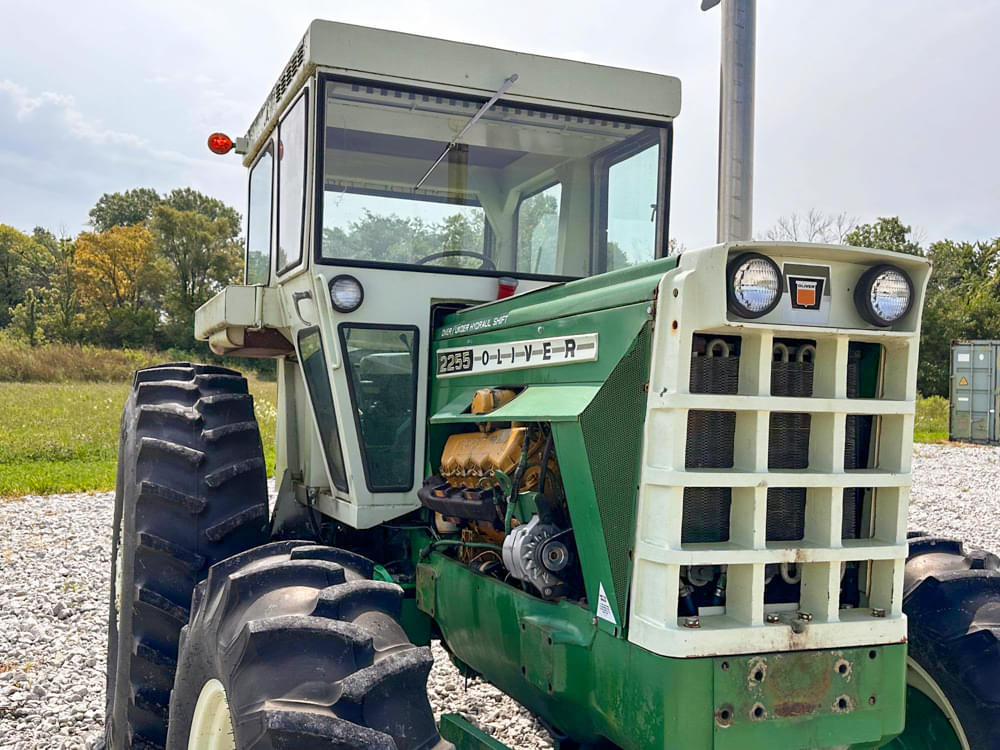
So, with a small team led by a guy named John Rex, they started to develop what became the Oliver 2255 in early 1972. John left part-way through the project to go work for Danuser in Missouri, and Bill Martinson assumed his place on the team and led the project to completion.
Basically, they needed to do as little “new” work as they could to put this tractor together. Not because they were lazy, but because they didn’t have time. So they started picking parts systems that they knew already worked from existing models like the 1955 and the 2155/G1350. The off the shelf parts comprised quite a bit of the tractor, but the one thing they didn’t have was an engine. So, they went shopping.
Here Kitty Kitty…
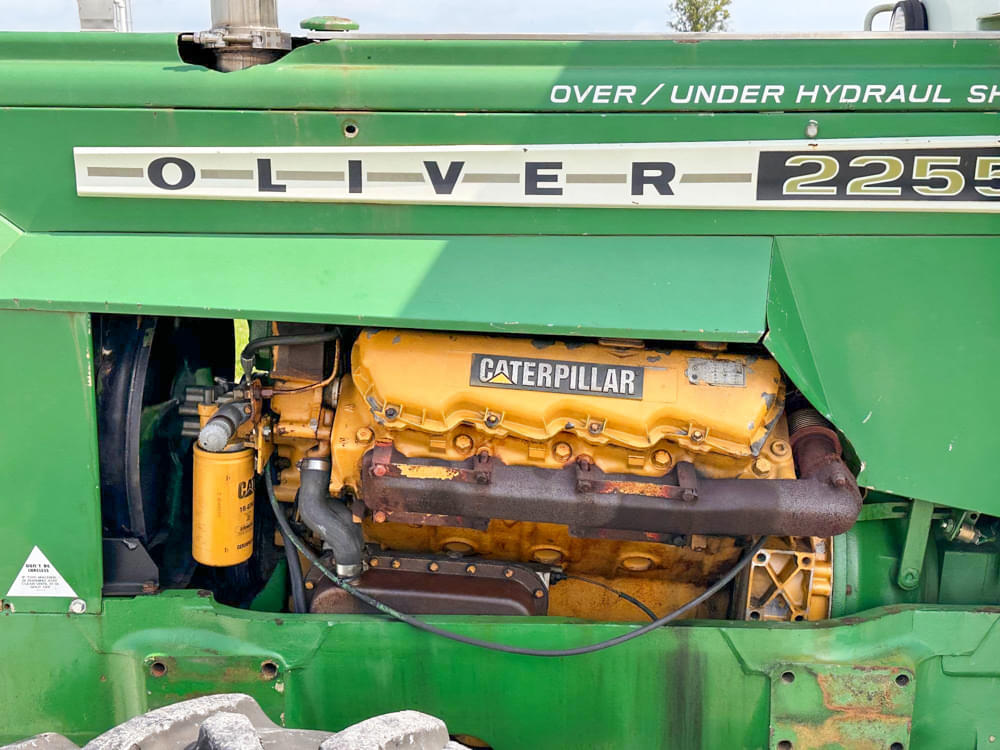
Just about every tractor company has worked with an engine supplier at some point in time or another, and Oliver was no different. They’d worked with Continental, Perkins, and Detroit Diesel in the past. They’re handy arrangements to have when you’re in a bind. And Oliver was definitely in a bind.
They didn’t want to invest more money and time in developing a new powerplant for the 2255, so they turned to CAT. They held CAT in fairly high regard, as their engines were well-respected and since Oliver no longer competed with them in the crawler market, it was a no-brainer. So, the 3150 CAT diesel V8 was spec’d for the new tractor. (In 1974, the 3150 was replaced by the bigger 3208.)
The 3150 was a bigger and wider engine than the Waukesha 310 from the 1955 and the Moline 504 from the 2155/G1350, so Oliver’s engineering team built a wider frame and flared sheet metal to surround it.
Rollout
It all came together to be a pretty stout package that looked terrific in both 2WD and MFWD trims! Oliver debuted the tractor to dealers on September 1st, 1972 as a “New for ’73!” model in Grand Island, NE and they loved it! However, what was more impressive (to me, at any rate) was that this tractor went from an idea to a fully-tested, production-ready tractor in under 9 months!
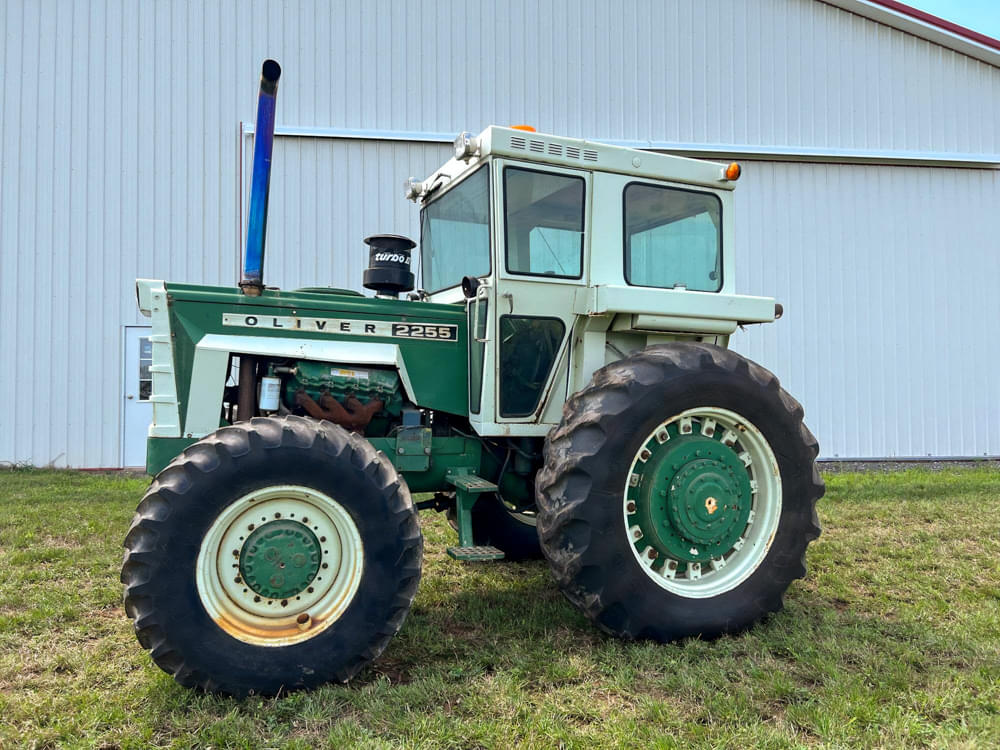
Before we get into another section, if you’re looking for more of a deep dive into the 2255, Chris Losey (That Oliver Guy on YouTube) has written a tremendous article for the Hart-Parr Oliver Collectors of America that’s hosted here. It’s well-worth digging into if you’re an Oliver nut. Chris is a wealth of knowledge, and we’re lucky to have guys like him who beat the drum for all things Oliver & White!
Testing
When the tractor was ready for prime time, Oliver sent it out to the Nebraska Lab for testing and certification. At this point, the 2255 had the 3150 CAT in it, and after the test engineers beat it to death for a few weeks, they certified it at just a hair under 147 PTO hp. This made it the most powerful tractor that Oliver ever built!
Sidebar: The Nebraska Tractor Test Lab and bourbon have more in common than you think…
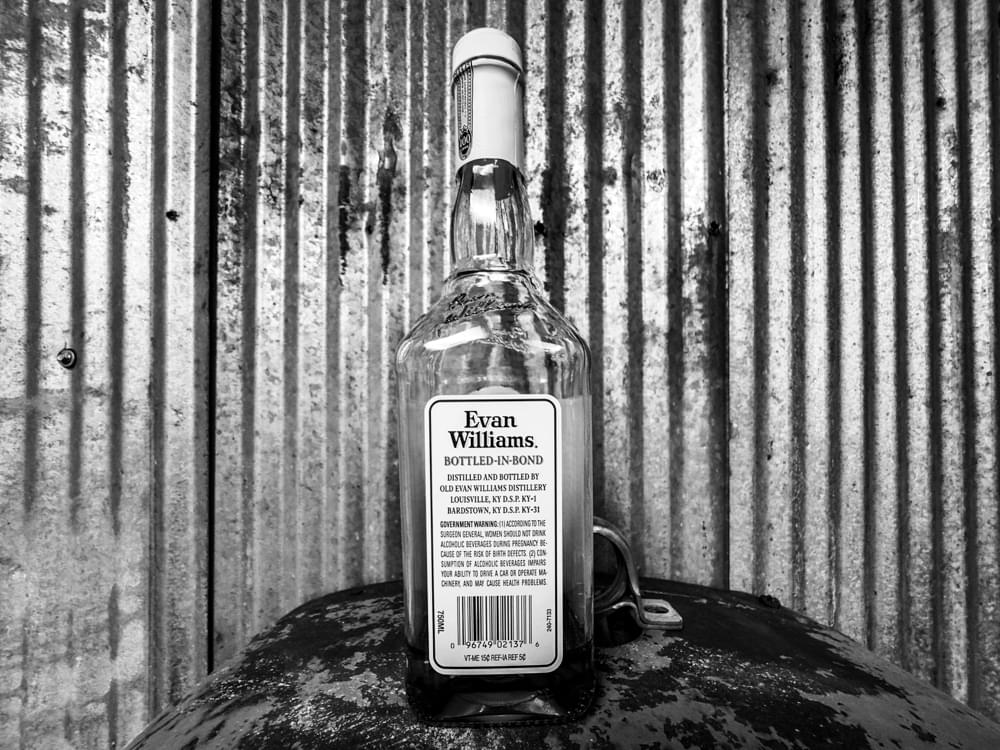
Stick with me here. I thought this was interesting and I’ll bet some of you will, too.
I found out something interesting when I was doing the homework on this tractor. In 1974, when the engine in the Oliver 2255 changed from a 3150 CAT to a 3208 CAT, they never bothered sending the “new” model to Nebraska to be re-tested. It made about the same power in their test, so they didn’t bother. Well, in doing that (or not doing it, as the case happened to be), that made the new tractor illegal for sale in the state of Nebraska.
Yep, you read that right.
Technically, any new Oliver 2255s with a 3208 CAT couldn’t be sold at Nebraska dealers.
Here’s why – and how it relates to bourbon.
The Bottled In Bond Act of 1897
In the 1890s, it was easy to slap a “bourbon whiskey” label on any bottle and sell it, with no rules. Sketchy producers (sometimes called rectifiers) added dangerous ingredients like tobacco juice and paint thinner to fake the taste and color. People fell ill or died, damaging the reputation of the honest guys who sold a quality product.
So, in 1897, the government passed the Bottled In Bond Act to ensure that if a bottle was to be labeled “bourbon whiskey” that it had to meet certain published rules. It was America’s first consumer protection law, and it made producers stop cutting corners and selling dangerous products. There’s no telling how many lives that law has saved.
Yeah, great. Thanks for the boozy history lesson, Interesting-Iron-guy…can we cut to the chase please?
Yep, sure thing.
The Nebraska Tractor Test Act of 1919
The Nebraska Tractor Test Lab is exactly the same thing, but for tractors. It all started because Wilmot Crozier, a farmer from Osceola, NE, got suckered into buying a counterfeit Fordson back in 1918. It looked the part and made tractor noises alright. However, when he put it in the field in front of a gang plow, it fell on its face. When he realized that he’d been had, he was livid. So he did something about it.
As it turns out, Wilmot was also a state representative. In 1919 he successfully pushed the Nebraska Tractor Test Act through the legislature. It required that any tractor model sold in the state of Nebraska be subject to a battery of tests to prove that it would make the power that the manufacturer claimed it would. A year later, the Nebraska Tractor Test Lab went into business doing just that. The first tractor they ever tested? A Waterloo Boy.
The NTTL Act has undergone some changes here and there throughout the years (now it’s only required for tractors rated for over 100 hp), but the premise remains the same. If you claim that your tractor makes 147 hp on the PTO, you’re going to have to prove it to Nebraska before they’ll let you sell it.
So wrapping this back into the story of the Oliver 2255, they didn’t get the 3208-powered model tested, so they couldn’t sell it in Nebraska!
Oliver 2255: By the numbers…
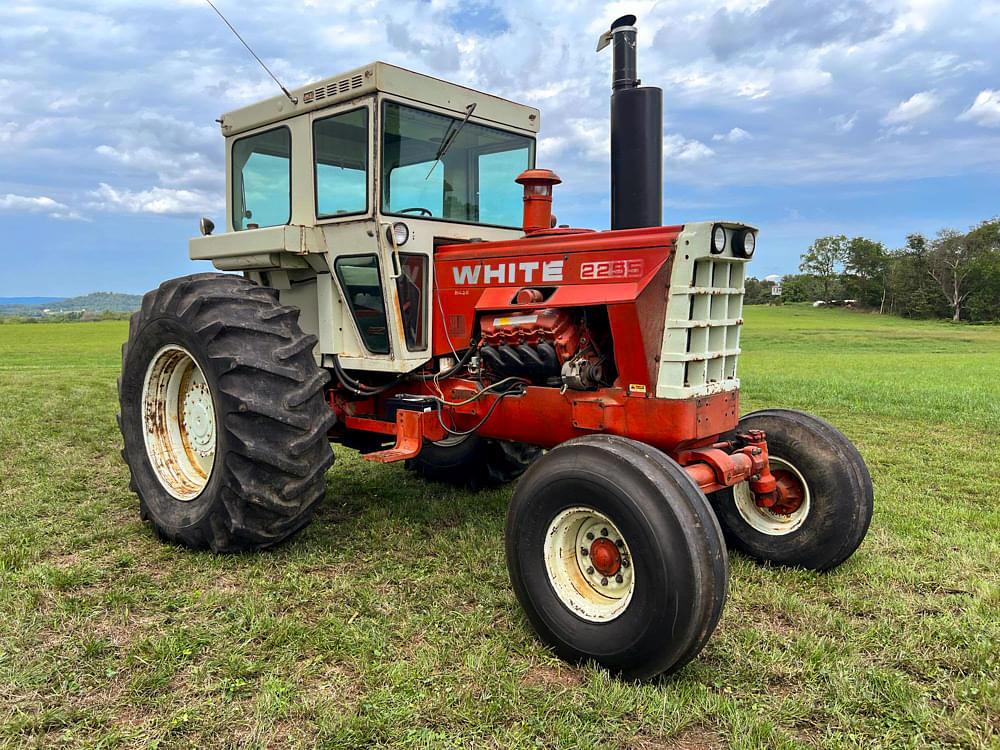
Overall, the total production for the Oliver 2255 was 2160 units from 1972–1976. The biggest overall year of production was 1974, which accounted for close to half of all production. That’s also the year Oliver switched the engines partway through the year, too. Sadly, though, when the last 2255 was built on February 13th, 1976, it was more than just the last 2255. It was, in fact, the last Oliver tractor ever built. Everything afterward would be painted silver and wear White badging.
The Oliver 2255 was never really intended to be a huge-production tractor. If it had, Oliver would’ve been able to justify further development and tooling on an in-house motor option. However, it was a pretty good seller, and a decent performer in the field.
The CAT engines were good, but I wouldn’t say they were great. History certainly hasn’t been very kind to them, at any rate. A few weeks ago, I asked (on our socials) what the worst engine to ever get shoved in a farm tractor was, and the 3208 CAT was definitely the biggest loser on that list.
Here’s the thing, though; if I went out on our socials tomorrow and asked, “What’s the coolest muscle tractor of all time?” I’ll just about guarantee you that we’d get dozens of responses that nominated the 2255, despite having an engine that gets roasted on the regular. I feel like the White 2-180 gets a pass quite a bit of the time too, for that matter.
So what’s the deal on the ones selling soon?
Glad you asked, because these three are pretty sweet. Let’s take a look at ’em. The first two belong to one of our longtime Pennsylvania auctioneer partners, Greg McGrew. He’s got a really cool collection of tractors as well as garden tractors out in Gettysburg, and he’s partnered with Kurt Aumann’s team to sell them on November 19th and 20th. Greg’s collection is pretty eclectic, but includes some really cool all-original tractors. Stuff like an all-original 1200-hour John Deere 60, a 386-hour Boxcar Magnum, and these two below!
Normally, I try to reach out to the owners of the tractors I write about, but unfortunately that wasn’t an option this time. At some point, though, I’m going to run Greg down and chat with him about this collection and how it all came together!
Greg’s Red One
Greg’s “Other” 2255
This tractor isn’t quite as original, as it’s been repainted at some point. However, at 4800 original hours, it’s got a lot going for it. This one was built sometime in mid-1974, so it’s one of 820 tractors that came with the 3208 CAT, and one of 164 MFWD models built that year. Neat piece for sure!
The Hot Rod
I’m not sure who owns this particular 2255, but it’s hiding a little hairdryer-shaped secret under the hood. Yep, this one is hot-rodded a little more than most. It’s apparently turned up a fair bit, too – according to the listing, it makes about 250 horsepower!
Bolting a turbo on to one of these tractors isn’t super-crazy. In fact, it’s a pretty common modification. I’ll bet there’s at least ten or twenty of ’em in our Tractor Zoom Pro database that note a turbo in the description. You had to be pretty careful with ’em, as that extra power comes with increased risk of destroying motors.
Here’s a few photos.
So what are they worth?
The more original the tractor, the more it’ll bring at auction, generally-speaking. Greg’s Vermillion Red 2255 2WD is pretty darn rare and quite original too. His green one is pretty neat, too. Furthermore, the hot rod turbocharged 2255 is really nice, too. Honestly, I think you’ll need a minimum of $30K or more to be in the hunt for any of these tractors – and even that could be low. Kurt Aumann knows how to market and sell 2255s, too. I’m fairly sure he’s set a record and broken it at least two or three times.
Regardless, it’ll be neat to watch these sell!
Here’s the link one more time. Oliver 2255s listed on Tractor Zoom

